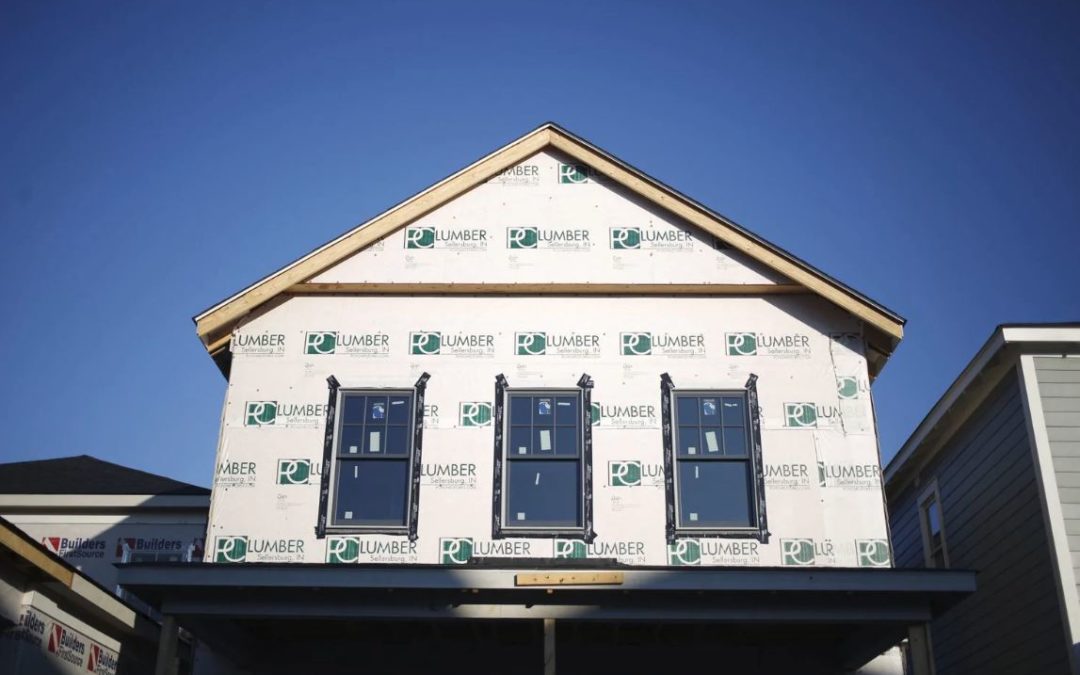Loads of houses are up for sale — but middle-class buyers are still shut out
Written by
June 28, 2019

Original article: Washington Post By Taylor Telford January 24, 2019
Despite an uptick in homes on the market and weakening home sales across the country, home ownership is out of reach for a growing number of middle-class buyers, according to a recent report from real estate brokerage Redfin.
An analysis of U.S. homes on the market in 2017 and 2018 found that the number of affordable homes for sale has decreased in 86 percent of metro areas (of 49 included in the study), even as the number of homes on the market grew. While buyers normally benefit from better availability in competitive housing markets, it doesn’t help if the majority of available homes are priced for the wealthy.
“For the past few years, home prices have gone up faster than wages,” said Daryl Fairweather, chief economist at Redfin. “That kind of growth really isn’t sustainable. At a certain point, there won’t be enough buyers left for the homes left on the market.”
Home ownership has long been at the heart of the American dream, a means of accumulating wealth and securing financial stability. But ownership rates have fallen dramatically since the financial crisis — coming in at 64. 4 percent in the third quarter of 2018, according to data from the U.S. Census Bureau — a telling sign that the traditional markers of middle-class life are getting tougher and tougher to hang onto.
To estimate affordability, researchers used the median income in each metro area, applied standard interest rates and assumed a 20 percent down payment and a monthly mortgage payment of 30 percent or less of the buyer’s gross income. Even adjusting for 10 percent down payment, just over half of homes on the market were affordable, according to the study.
In Seattle, the share of affordable homes fell 14 percent from 2017 to 2018, leaving only 46 percent of homes within the reach of middle-class families. In San Jose, Calif., the share of affordable homes fell from 26 percent to 14 percent over the same time.
According to the National Association of Realtors, existing home sales in December were down 10.3 percent year over year, the biggest drop since the housing market bottomed in 2011. At the same time, the median home sale price was $223,900, according to Zillow’s home value index.
Current conditions mirror what happened after the housing market collapsed. Prices tumbled and property was abundant, but the only people who could afford to buy were those who hadn’t been crippled by the financial crisis. Years later, a booming economy has yet to restore buying power to middle-class families, as mortgage rates and home prices have climbed. Prices surpassed their pre-crash peak in October 2017. And according to a December report from ATTOM Data Solutions, last quarter was the nation’s worst for home affordability in over a decade.
In metro areas, part of the issue is a lack of public investment in affordable housing, Fairweather said. The problem is often exacerbated in cities that serve as hubs to major tech companies, where an influx of highly paid workers has ratcheted up prices and cost of living. It’s fueling a flight from the coasts, as increasing numbers of people move inland in search of affordability.
Some states and cities are taking steps to correct this. California’s Gov. Gavin Newsom has an ambitious plan to oversee construction of 3.5 million new housing units by 2025. In November, the Minneapolis City Council signed off on $12 million in affordable housing investments throughout the city. Private companies are even stepping up to the plate — and Microsoft announced it’s offering up $500 million to build and protect affordable housing in Seattle.
The housing market is a cornerstone of U.S. economic output, accounting for over 12 percent of the country’s GDP in 2017. With the economy deep into an expansion, there’s been a rise in first-time home buyers, but if conditions persist, many may be priced out and forced to rent instead.
“Now the economy is doing better and more people are looking to buy a home for the first time,” Fairweather said, “but they’ve missed the boat on affordable deals.”



Divi Meetup 2019, San Francisco
Related Articles
The Real Estate Market is Cyclical, Don’t Panic, Adjust!
The Real Estate Market is Cyclical, Don’t Panic, Adjust! The Real Estate market is cyclical. The data shows, and it’s clear that we are experiencing one of the toughest real estate markets in the past decade. As bad as it is, there are certain agents who do well,...
Why the housing market is going from tough to terrible
Why the housing market is going from tough to terrible Do you like this Article ? Sign up HERE for your FREE M&M Account to receive more Real Estate related information and news and THIS article. M&M Membership includes: FREE Coaching Events & Workshops,...
As mortgage rates hit 8%, home ‘affordability is incredibly difficult,’ economist says
As mortgage rates hit 8%, home ‘affordability is incredibly difficult,’ economist says Do you like this Article ? Sign up HERE for your FREE M&M Account to receive more Real Estate related information and news and THIS article. M&M Membership includes: FREE...
